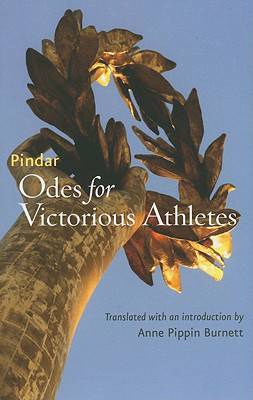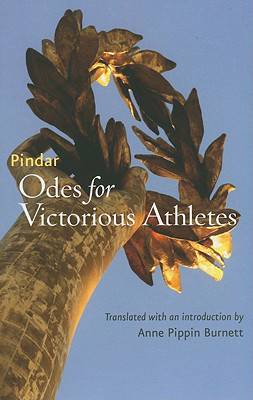
- Retrait gratuit dans votre magasin Club
- 7.000.000 titres dans notre catalogue
- Payer en toute sécurité
- Toujours un magasin près de chez vous
- Retrait gratuit dans votre magasin Club
- 7.000.0000 titres dans notre catalogue
- Payer en toute sécurité
- Toujours un magasin près de chez vous
Description
You've just won the gold medal, what are you going to do? In Ancient Greece, your patron could throw a feast in your honor and have a poet write a hymn of praise to you. The great poet Pindar composed many such odes for victorious athletes. Esteemed classicist Anne Pippin Burnett presents a fresh and exuberant translation of Pindar's victory songs.
The typical Pindaric ode reflects three separate moments: the instant of success in contest, the victory night with its disorderly revels, and the actual banquet of family and friends where the commissioned poem is being offered as entertainment. In their essential effect, these songs transform a physical triumph, as experienced by one man, into a sense of elation shared by his peers--men who have gathered to dine and to drink.
Athletic odes were presented by small bands of dancing singers, influencing the audience with music and dance as well as by words. These translations respect the form of the originals, keeping the stanzas that shaped repeating melodies and danced figures and using rhythms meant to suggest performers in motion.
Pindar's songs were meant to entertain and exalt groups of drinking men. These translations revive the confident excitement of their original performances.
Spécifications
Parties prenantes
- Auteur(s) :
- Editeur:
Contenu
- Nombre de pages :
- 200
- Langue:
- Anglais
- Collection :
Caractéristiques
- EAN:
- 9780801895753
- Date de parution :
- 15-08-10
- Format:
- Livre broché
- Format numérique:
- Trade paperback (VS)
- Dimensions :
- 137 mm x 211 mm
- Poids :
- 249 g







